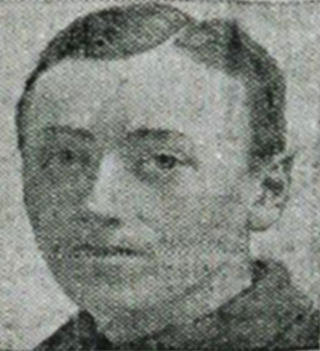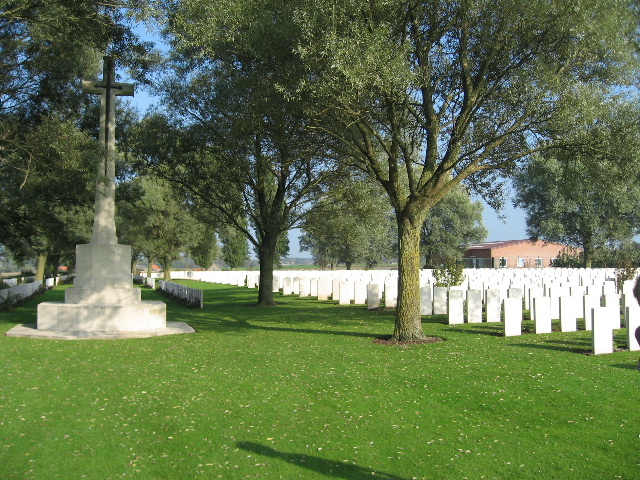Wartime Service
Herbert enlisted in 1916 in St Albans. At his death he is a Lance Corporal 33188 in the 8th Battalion, Bedfordshire Regiment. He is killed in action 21st July 1917. He is buried in the Philosophe British Cemetery, Mazingarbe, France.
Newspaper report of the Herts Advertiser 11th March 1916 says:
Lance-Corpl H Hiskett
Bad News for a St Albans family
Mr and Mrs William Hiskett, 27 Lattimore Road, St Albans, received official news on Tuesday that their fifth and youngest son, Lance-Corpl Herbert Hiskett aged 20 of the Bedfordshire Regiment was killed in action last Saturday week – July 21st.
Lance-Corpl Hiskett was formerly in the Inland Revenue Department of the Civil Service at Somerset House and he joined the army – as soon as the Department released him for the purpose - in February 1916. He enlisted at St Albans and obtained his lance corporal stripe six weeks after he became a soldier. He was on the Instruction Staff at Dovercourt until last September, when he accompanied a draft of the Bedfordshire to France and had seen a good deal of fighting since that time. He went through the last Battle of Loos in April and went “over the top” four times in as many days. The deceased was a member of Tabernacle Baptist Church, St Albans, of which his brother, Mr Robert Hiskett, is the secretary, and was a Sunday school teacher and missionary secretary of the church. A memorial service will be held at Tabernacle Baptist Church, next Sunday evening when the Rev H W Taylor will officiate.
Deceased was educated at Hatfield Road School and St Albans Grammar School entering the latter after winning a County Council Scholarship. He was an honourable, upright, happy and universally esteemed young fellow, and a large circle will experience a sense of personal loss in his death. Three other brothers are in his Majesty’s service viz Company Sergt Major W R Hiskett, aged 32, Royal Engineers, now in France; Charles Hiskett SSA with the Grand Fleet, aged 27 (who is expected home on leave next Sunday, having made arrangements to be married on the following Sunday); and Corpl Frank Hiskett, aged 25, a motor cycle dispatch rider in France.
Captain A W Elliott, the chief officer of deceased’s company, in a letter to the mother writes:- “Long before you receive this note you will have had news of your son’s death. For a long time now he had been company clerk, and the night that he was killed he went down to meet the rations. When the rations arrived they said they had never seen him, and nothing was heard of him until next morning, when a company in support telephoned up that they had found his body. From examination of the body it is almost certain that he was killed by shellfire, and they think that death must have been instantaneous. Your son was very popular with company headquarters and his death was a great shock to us. He was always cheery and willing to help. He was a very capable clerk, and all the little things he used to assist me in each day are constantly reminding me of him. The officers and men all join me in offering you are sympathy in your great bereavement.”
Company Quartermaster – Sergt W Packer (who, by the way, is a Watford man), in the course of a letter, states:- “I can assure you it was a great blow to myself when I heard the sad news concerning your son and I had great confidence in him as he was always willing, never faint hearted, but with his cheery smile would set out for the rations for the boys of his company; and had won the esteem and respect of officers and men. We feel his loss and wish to share your bereavement and trust that consolation may be given to you in the fact tht your brave boy, with many others, have paid the price of that mighty sacrifice which Britain’s lads are giving so that those far and wide may yet enjoy the life and liberty that England longs to give. Your son’s death was instantaneous by German shell fire in a trench while going for the company’s rations. His body has been recovered and was buried at _____ near Looe, and the battalion will put a cross upon the grave.”



